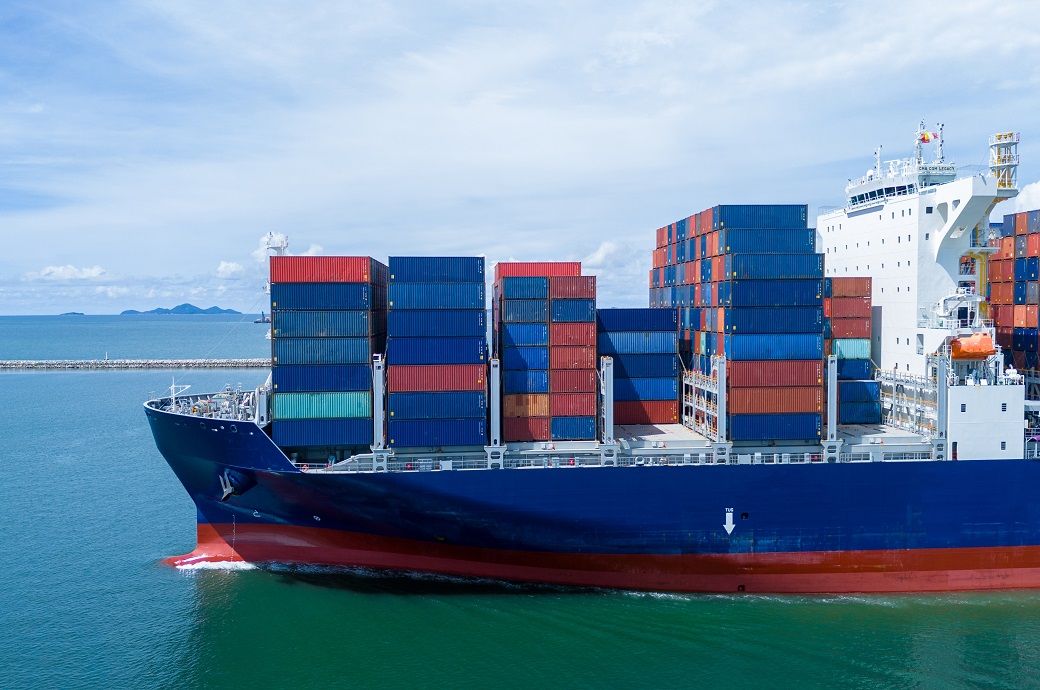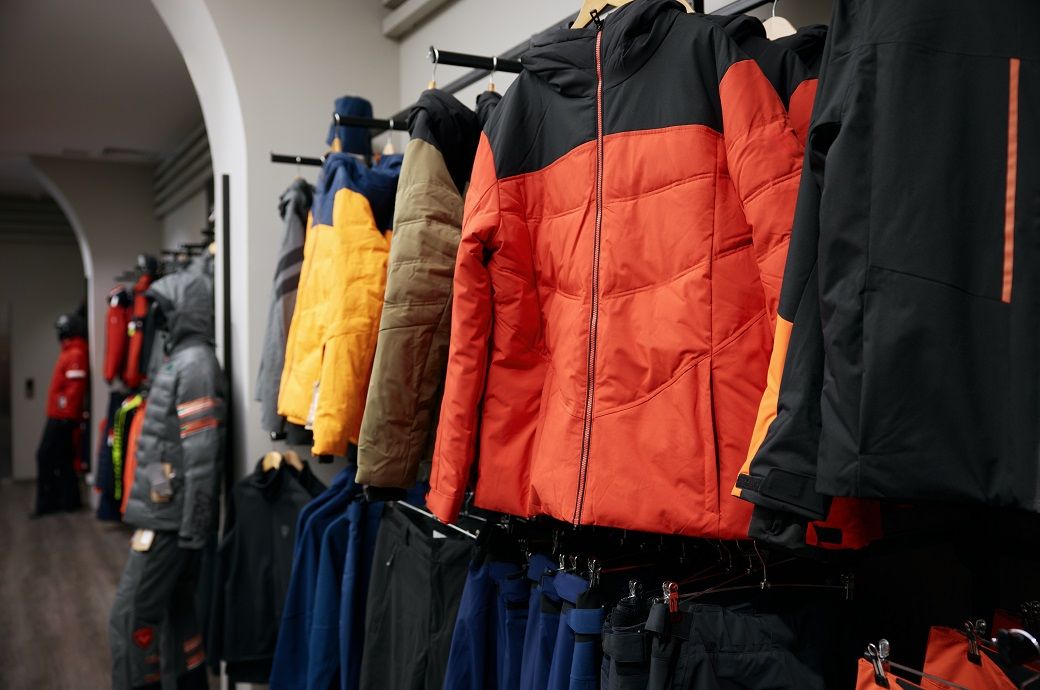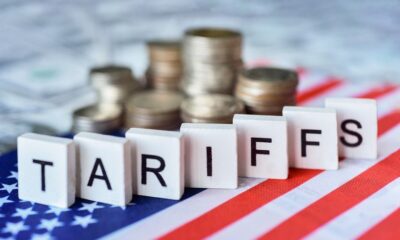Fashion
WSC launches industry-first Cargo Safety Programme to prevent fires

The programme combines artificial intelligence (AI)-powered cargo screening and common inspection standards to identify misdeclared and undeclared high-risk shipments before they are loaded.
The World Shipping Council has launched its Cargo Safety Programme, an initiative to detect misdeclared and undeclared dangerous goods to prevent ship fires and protect vessels and the marine environment.
The programme combines AI-powered cargo screening and common inspection standards.
At launch, carriers representing more than 70 per cent of global TEU capacity have joined the programme.
Misdeclared dangerous goods are a leading cause of ship fires, reported as responsible for more than a quarter of all cargo-related incidents.
“The WSC Cargo Safety Program strengthens the industry’s safety net by combining shared screening technology, common inspection standards, and real-world feedback to reduce risk,” said Joe Kramek, president and chief executive officer of the council, in a release.
At the heart of the programme is a digital cargo screening tool powered by the National Cargo Bureau’s (NCB) technology. It scans millions of bookings in real time using keyword searches, trade pattern recognition and AI-driven algorithms to identify potential risks. Alerts are reviewed by carriers and, when needed, verified through targeted physical inspections.
The programme also establishes common inspection standards for verifying shipments and an incident feedback loop to ensure lessons from real-world cases strengthen prevention. At launch, carriers representing more than 70 per cent of global TEU capacity have joined the programme.
Fibre2Fashion News Desk (DS)
Fashion
Australia’s NAB expects RBA to raise policy rate by 25 bps in Feb

The economy is already at trend growth, and private final demand is running stronger than the RBA anticipated.
The NAB business survey shows that capacity utilisation is elevated and that there is breadth to this dynamic at an industry level. Businesses reported less pressure on margins over recent months.
The National Australia Bank expects the Reserve Bank of Australia (RBA) to raise the policy rate by 25 bps in February, followed by another likely 25-bps hike in May, taking the cash rate to 4.1 per cent.
The economy is already at trend growth, and private final demand is running stronger than RBA’s anticipation.
Inflation accelerated in Q3 2025, and NAB forecast a 0.9-per cent QoQ for trimmed-mean in Q4.
Inflation accelerated in the third quarter (Q3), and NAB has forecast a 0.9-per cent quarter on quarter (QoQ) for trimmed-mean in Q4, suggesting inflationary pressures have persisted.
If realised, this will imply a period of five quarters in which the annual rate of core inflation runs at 3 per cent or higher. Moreover, it would represent a 15 basis points surprise relative to the RBA’s most recent forecast for the Q4 outcome.
Taken in conjunction with stronger growth outcomes and evidence of capacity constraints starting to bind, the bank believes an inflation outcome of this magnitude will force the RBA to execute a modest recalibration of monetary policy in the first half next year, an NAB release said.
Fibre2Fashion News Desk (DS)
Fashion
Ensuring I-EAEU FTA’s effective implementation a challenge: Indonesia

The agreement is scheduled to be signed during the EAEU Summit in St. Petersburg, Russia, on December 20-21, an EAEU release said.
As Indonesia prepares to welcome the signing of the Indonesia-Eurasian Economic Union Free Trade Agreement, Trade Minister Budi Santoso has said the true challenge is to ensure its effective implementation.
The pact is expected to be signed at the EAEU Summit in St. Petersburg on December 20-21.
Implementation is targeted by late 2026 or early 2027.
The FTA’s initial phase will focus on goods trade.
At the Strategic Forum on International Trade: Indonesia-EAEU FTA in Jakarta, Santoso stressed that without readiness from businesses and strong partnerships, the FTA risks becoming a mere document rather than a driver of trade.
To address this, the Indonesian Ministry of Trade is encouraging the creation of communication platforms and business partnerships between Indonesia and EAEU member states.
Indonesian exports to the bloc reached $1.9 billion in 2024, with total trade valued at $4.5 billion. Over the past five years, bilateral trade has grown at an average annual rate of 21.45 per cent.
The FTA could potentially double total trade, opening access to a vast market of nearly 200 million people, Santoso noted.
The initial phase of the FTA will focus on goods trade, while services, investment and broader cooperation may be included later.
Each EAEU member state is expected to ratify the FTA following the signing. Implementation is targeted by late 2026 or early 2027.
“Over the past three years, the landscape of our foreign trade has been completely renovated. If the EU’s [European Union’s] share of our trade turnover previously exceeded 50 per cent, it now stands at 18 per cent, while the share of BRICS+ countries has increased from 30 per cent to almost 70 per cent,” Andrey Slepnev, Minister in charge of Trade of the Eurasian Economic Commission (EEC), told a recent press conference.
Fibre2Fashion News Desk (DS)
Fashion
UK’s apparel imports ease to $2.4 bn in Jan-Oct 2025

Textile fabric and fibre imports also posted decline. Fabric imports stood at £*** million (~$***.** million), *.** per cent lower than £*** million in October ****, while fibre imports slipped to £** million (~$**.** million) from £** million a year earlier. But, month on month, fabric imports rose from £*** million, and fibre imports from £** million.
During the third quarter (Q*) of ****, the UK imported clothing worth £*.*** billion (~$*.*** billion), up **.** per cent from £*.*** billion in Q* **** and **.** per cent higher than £*.*** billion in Q* ****. Fabric imports during Q* were valued at £*.*** billion (~$*.*** billion), while textile fibre imports totalled £** million (~$***.** million), compared with £*.*** billion and £** million, respectively, in Q* ****. In Q* ****, fabric and fibre imports had reached £*.*** billion and £** million, respectively. Quarterly growth suggests stronger order placements by UK brands following improved retail sell-through over the summer.
-

 Business6 days ago
Business6 days agoHitting The ‘High Notes’ In Ties: Nepal Set To Lift Ban On Indian Bills Above ₹100
-

 Politics1 week ago
Politics1 week agoTrump launches gold card programme for expedited visas with a $1m price tag
-

 Business1 week ago
Business1 week agoRivian turns to AI, autonomy to woo investors as EV sales stall
-

 Fashion1 week ago
Fashion1 week agoTommy Hilfiger appoints Sergio Pérez as global menswear ambassador
-

 Sports1 week ago
Sports1 week agoPolice detain Michigan head football coach Sherrone Moore after firing, salacious details emerge: report
-

 Business1 week ago
Business1 week agoCoca-Cola taps COO Henrique Braun to replace James Quincey as CEO in 2026
-

 Tech1 week ago
Tech1 week agoGoogle DeepMind partners with UK government to deliver AI | Computer Weekly
-

 Sports1 week ago
Sports1 week agoU.S. House passes bill to combat stadium drones

















